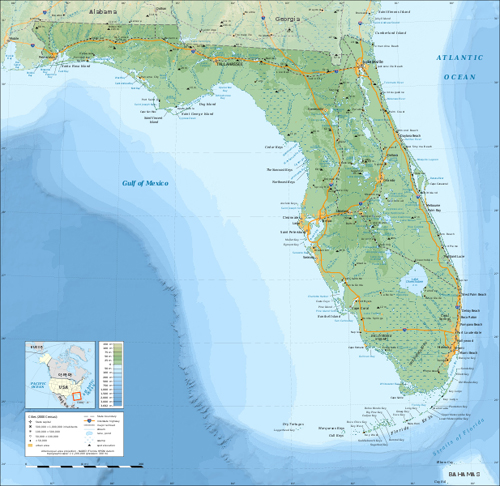A SCOT accused of murdering a man in Florida is set to appeal to the Grand Chamber of the European Court of Human Rights to prevent his extradition.
Phillip Harkins says that the treatment he would receive in the US would violate his rights.
This week’s legal move follows the rejection in January by seven Strasbourg judges of his appeal against extradition.
Harkins could be sent to Florida Photo:Eric Gaba
Their decision will become final unless the court approves the request for a referral to the Grand Chamber.
Scotland Against Criminalising Communities (SACC) has welcomed the move, believing Harkins’ case raises important human rights issues, including the US practice of imposing life sentences with no possibility of parole, and the willingness of US courts to accept testimony provided as part of a “plea bargain” by prosecution witnesses.
The Grand Chamber of the European Court of Human Rights is the right place for these issues to be considered.
If convicted in the US, Philip Harkins would be at risk of long periods of solitary confinement. This is a standard and widespread mechanism for control and punishment within the US prison system. SACC shares the view of many human rights experts around the world that prolonged solitary confinement violates both the UN’s Universal Declaration of Human Rights and the European Convention of Human Rights.
But the risk of solitary confinement wasn’t considered by the Strasbourg judges in reaching their January decision. They only examined Harkins’ claim that a mandatory sentence of life without possibility of parole would violate his rights. Oddly, they concluded that it would not.
Richard Haley, chair of SACC, said: “The Strasbourg court took a disappointingly narrow view of Phillip Harkins’ case when it decided in January to allow his extradition. Phillip Harkins has been fighting for years to persuade the courts to take seriously his well-founded fears of an unfair trial in the US and the likelihood of grim, hopeless imprisonment if he is convicted there.
“The case against Phillip Harkins depends on evidence from a co-accused, Terry Glover, who provided it in exchange for prosecutors dropping the murder charge that Glover was himself facing. Glover was 17 at the time the deal was struck. He was subsequently convicted on lesser charges and given probation. The pressure he must have felt himself to be under means that the deal was tantamount to obtaining evidence through the threat of torture.
“The European Court of Human Rights seems unwilling to face up to flaws in the US justice and penal systems that are obvious to everyone else. At the beginning of March the court’s judges held a historic meeting – the first ever – with judges from the US Supreme Court.
“I fear that this will mark the start of an even cosier relationship between the European and US systems. The Strasbourg court needs to enforce international human rights law as it is understood in Europe and the rest of the world. It isn’t its job to legitimise the eccentric interpretation of human rights that has developed in the US.”

